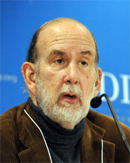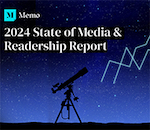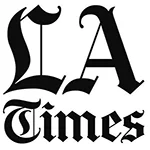A column in the May 17 Wall Street Journal hailed bridge as "this most cerebral pastime" and carried an email urging WSJ to take up the bridge column that the New York Times recently dropped after 52 years.
|
|
"It is stunning to me that NYT stopped the Phillip Alder bridge column," wrote David Engle. "I can’t think of any other decision that the Times has made that I disagree more with. Perhaps WSJ could sign Mr. Alder up so that he could continue his incredible column, which would be an amazing turn of events for those who feast on the game of bridge."
A comment by Alan Kelman said, "I have a short list of other poor decisions made by the NY Times. Way longer list exists too."
The WSJ article by Michael Leeden of the Foundation for the Defense of Democracies drew 98 comments that painted bridge as a game that increases mental activity and may help to ward off Alzheimer’s and other mental diseases.
"Bridge may be too tough for contemporary Americans," wrote Leeden. He notes that while IBM’s Deep Blue defeated chess grandmaster Garry Kasparov in a six-game match in 1997, computers have not been able to do the same with bridge.
"The shrinking population of American bridge players goes hand in hand with other evidence of declining mental discipline including shortening attention spans and decreases in book readership," said Leeden.
Mental Discipline Declines
"You can’t be a winning card player unless you can concentrate for several hours and mastery of the game takes years," he said. "Neither is bridge a solo activity; you need a partner with whom you must reach very detailed agreements about myriad situations. All this is good for the mind: bridge provides stimulation that can help players retain their mental toughness and stave of dementia."
Leeden said high schools and colleges could spur interest in the game by introducing bridge instruction and competitions. "Bridge lovers like Bill Gates and Warren Buffett would surely approve and could sponsor programs and tournaments for young players with suitable awards."
Duplicate bridge games, in which all in the room play the same hands and compare results, usually involve 24 hands and take four hours to complete. Results are posted immediately after the game as well as the ideal ways that the hands could have been played.
The American Contract Bridge League, based in Horn Lake, Miss., has criticized the NYT move but does not have a campaign seeking restoration of the column. Its PR firm is McNeely Piggott & Fox PR, Nashville.
NYT culture editor Danielle Mattoon told public editor Margaret Sullivan that the column was "time-consuming" because "overworked" copy editors had to "play the game" to make sure it checked out.



 Trump Media & Technology Group today reported a $58.2M net loss on $4.1M in 2023 revenues, a disclosure that drove its stock price down 22.6 percent to $47.96.
Trump Media & Technology Group today reported a $58.2M net loss on $4.1M in 2023 revenues, a disclosure that drove its stock price down 22.6 percent to $47.96. Barry Pollack, an attorney at Wall Street’s Harris St. Laurent & Wechsler, has registered Julian Assange as a client with the Justice Dept. “out of an abundance of caution.”
Barry Pollack, an attorney at Wall Street’s Harris St. Laurent & Wechsler, has registered Julian Assange as a client with the Justice Dept. “out of an abundance of caution.” Paramount Global to slash 800 jobs in what chief executive Bob Bakish calls part of an effort to “return the company to earnings growth"... Rolling Stone editor-in-chief Noah Shachtman is exiting at the end of the month due to disagreements with chief executive Gus Wenner over the direction the magazine is taking... The New York Times broke the $1 billion barrier in annual revenue from digital subscriptions in 2023... Press Forward is investing more than $500 million to strengthen local newsrooms.
Paramount Global to slash 800 jobs in what chief executive Bob Bakish calls part of an effort to “return the company to earnings growth"... Rolling Stone editor-in-chief Noah Shachtman is exiting at the end of the month due to disagreements with chief executive Gus Wenner over the direction the magazine is taking... The New York Times broke the $1 billion barrier in annual revenue from digital subscriptions in 2023... Press Forward is investing more than $500 million to strengthen local newsrooms. The majority of news articles are read within the first three days of publication, according to a recent report.
The majority of news articles are read within the first three days of publication, according to a recent report. The Los Angeles Times gives pink slips to 115 people or 20 percent of its newsroom staff... TIME is also laying off about 30 employees, which is approximately 15 percent of its editorial staff... The Baltimore Banner, which was launched by Stewart Bainum in 2022 after he failed to buy the Baltimore Sun, added 500 subscribers per day in the three days following Sinclair Broadcast Group's deal to purchase the Sun.
The Los Angeles Times gives pink slips to 115 people or 20 percent of its newsroom staff... TIME is also laying off about 30 employees, which is approximately 15 percent of its editorial staff... The Baltimore Banner, which was launched by Stewart Bainum in 2022 after he failed to buy the Baltimore Sun, added 500 subscribers per day in the three days following Sinclair Broadcast Group's deal to purchase the Sun.


 Have a comment? Send it to
Have a comment? Send it to 
No comments have been submitted for this story yet.